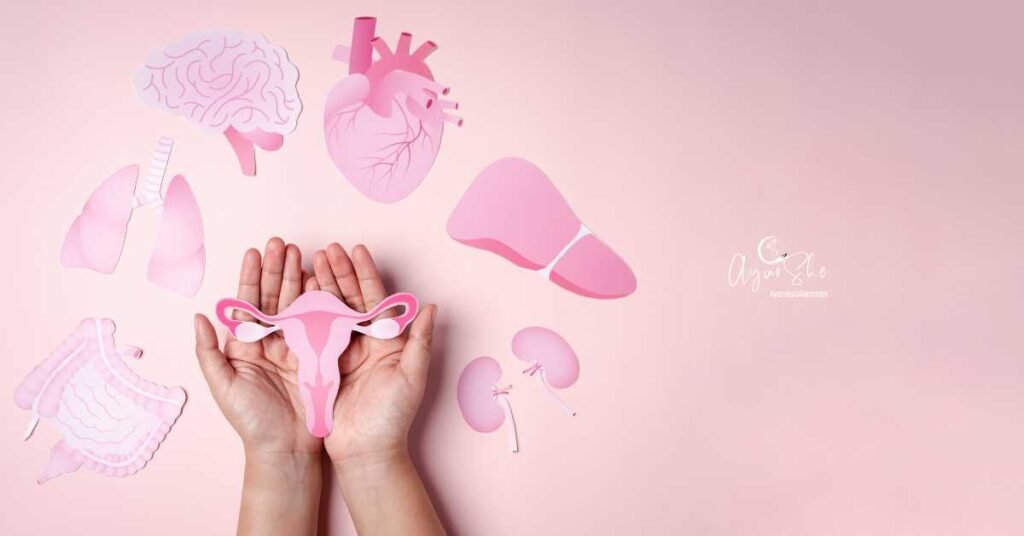Unexplained Infertility in Women: An Ayurvedic and Modern Science Review
Introduction
Infertility is defined as the inability to conceive after one year of regular unprotected intercourse. Globally, infertility affects around 15% of couples, with female factors contributing to nearly 40% of cases. In many women, the cause remains unexplained despite normal reports—a situation termed unexplained infertility.
Modern science attributes it to subtle ovulatory dysfunction, endometrial receptivity issues, immunological causes, or stress-related factors, which escape routine tests. Ayurveda offers a deeper lens, linking fertility to the balance of doshas, Agni, Shukra Dhatu, and Ojas, while also recognizing the importance of mental and emotional health in conception.
This article provides a comprehensive Ayurvedic and modern review of unexplained infertility, covering causes, diagnosis, serious notes, and integrative treatment strategies.
I. Understanding Infertility in Modern Medicine
🧬 Causes of Female Infertility
- Ovulatory disorders (PCOS, thyroid, hyperprolactinemia)
- Tubal blockage (PID, endometriosis, adhesions)
- Uterine factors (fibroids, polyps, adhesions)
- Poor ovarian reserve
- Cervical factors (hostile cervical mucus)
❓ Unexplained Infertility
Occurs when:
- Regular ovulation
- Patent fallopian tubes
- Adequate ovarian reserve
- Normal semen analysis
… yet conception does not occur.
⚠️ Modern Theories
- Subtle endometrial receptivity issues
- Immunological incompatibility between partners
- Poor egg/sperm quality not detected in standard tests
- Oxidative stress and inflammation
- Stress and lifestyle-induced hormonal imbalance
II. Ayurvedic Perspective on Infertility
🌸 Fertility in Ayurveda = Garbhadhana Samagri
Ayurveda emphasizes four essential factors for conception (Garbha Sambhava Samagri):
- Ritu (timely ovulation & fertile period)
- Kshetra (healthy uterus and reproductive tract)
- Ambu (proper nutrition and rasa dhatu)
- Beeja (healthy ovum and sperm)
Failure in any leads to infertility.
📖 Ayurvedic Terms Correlated
- Bandhyatva – Infertility
- Nashtartava – Anovulation/amenorrhea
- Artava Dushti – Irregular or poor-quality menstrual flow
- Beeja Dushti – Ovum defects
- Yonivyapad – Disorders of reproductive tract
⚖️ Dosha Involvement
- Vata (Apana Vata) → governs ovulation, implantation, and childbirth
- Kapha → provides nutrition to ovum, endometrium, fetus
- Pitta → responsible for hormonal regulation, metabolism, and ovum release
III. Modern & Ayurvedic Correlation in Unexplained Infertility
| Modern View | Ayurvedic Correlation |
|---|---|
| Endometrial receptivity defect | Artava Kshaya, Apana Vata Dushti |
| Oxidative stress | Ama accumulation, Pitta vitiation |
| Poor egg quality | Beeja Dushti |
| Stress, cortisol imbalance | Pranavaha Srotas Dushti, Manas imbalance |
| Immunological factors | Ojas Kshaya, Raktadushti |
| Lifestyle, late marriage, obesity | Kapha aggravation, Meda Dushti |
IV. Ayurvedic Management of Unexplained Infertility
Ayurveda emphasizes correction of root cause, strengthening reproductive tissues, calming the mind, and enhancing Ojas.
🌿 1. Shodhana (Detoxification Therapies)
- Vamana (Therapeutic Emesis): Clears Kapha, obesity-related infertility
- Virechana (Purgation): Removes Pitta vitiation, regulates hormones
- Basti (Medicated Enema): Best for Apana Vata correction, improves ovulation & implantation
- Uttarbasti: Specialized therapy, medicated oil/ghee introduced intrauterine → restores endometrial health, corrects tubal blockages
🌿 2. Shamana (Palliative Treatment – Herbs & Formulations)
| Herb | Benefits | Dosage & Use |
|---|---|---|
| Shatavari (Asparagus racemosus) | Female reproductive tonic, enhances ovum quality | 5 g powder with milk twice daily |
| Ashwagandha (Withania somnifera) | Adaptogen, reduces stress, improves fertility | 3–5 g powder with warm milk at night |
| Guduchi (Tinospora cordifolia) | Rasayana, immune support | 500 mg capsule twice daily |
| Phala Ghrita | Classical ghee for fertility | 1 tsp with warm milk daily |
| Kumari (Aloe vera) | Regulates cycles, improves endometrial health | 10–15 ml juice daily |
| Kanchanar Guggulu | Useful in subclinical PCOS, Kapha obstruction | 500 mg tablet twice daily |
🌿 3. Rasayana Therapy
- Suvarnaprashana (under supervision) – improves Ojas and fertility
- Chyawanprash – daily 1 tsp for vitality
- Brahma Rasayana – supports mental balance
🍽️ 4. Diet for Fertility (Ahara)
- Favor warm, freshly cooked, sattvic food
- Include:
- Ghee, milk, dates, sesame, black gram, pomegranate, figs
- Spices: cumin, fenugreek, saffron, turmeric
- Green leafy vegetables, whole grains
- Avoid:
- Processed/junk food
- Excess caffeine and alcohol
- Very spicy, dry, or stale food
🧘 5. Lifestyle (Vihara)
- Maintain regular sleep-wake cycle
- Yoga Asanas: Bhujangasana, Supta Baddha Konasana, Setu Bandhasana
- Pranayama: Nadi Shodhana, Bhramari, Ujjayi
- Avoid stress, excessive workload, and night shifts
🧠 6. Satvavajaya Chikitsa (Mind-Body Therapy)
- Meditation, chanting, journaling
- Counseling for anxiety and fear related to conception
- Cultivation of positive emotions → enhances Ojas
V. Modern Management of Unexplained Infertility
- Expectant management: Timed intercourse for 6–12 months
- Ovulation induction drugs: Clomiphene citrate, Letrozole
- Intrauterine insemination (IUI)
- In Vitro Fertilization (IVF) for resistant cases
- Stress management counseling
VI. Integrative Approach
- Ayurveda enhances egg quality, endometrial receptivity, and stress resilience.
- Modern diagnostics + ART (IUI/IVF) + Ayurveda (Uttarbasti, Rasayana, Yoga) = best outcomes.
- Reduces ART failure by supporting body’s natural fertility rhythm.
VII. Research Evidence
- AYU Journal (2012): Shatavari + Phala Ghrita improved conception rates in infertile women.
- Journal of Ayurveda & Integrative Medicine (2017): Basti therapy improved ovulation in women with unexplained infertility.
- Modern trials show yoga reduces cortisol and improves IVF success.
VIII. Serious Notes & Precautions
- Infertility may also indicate thyroid disease, endometriosis, tubal block → always do complete modern evaluation.
- Self-medicating with Ayurvedic herbs without guidance may lead to hormonal imbalance.
- Couples >35 years should seek early evaluation, not delay treatment.
Conclusion
Unexplained infertility can be deeply frustrating for women and couples. Modern medicine often cannot pinpoint subtle causes, while Ayurveda provides a root-cause lens, correcting dosha imbalance, ama accumulation, and Ojas depletion.
Through detox therapies, herbal formulations, Rasayana rejuvenation, fertility-friendly diet, yoga, and emotional balance, Ayurveda strengthens the reproductive system and enhances natural conception.
When combined with modern reproductive technology, Ayurveda becomes a powerful ally in turning uncertainty into hope.


